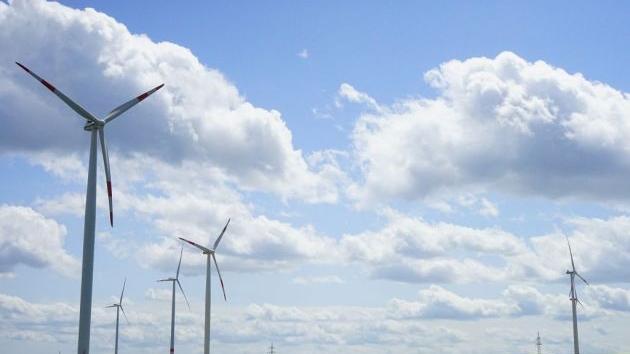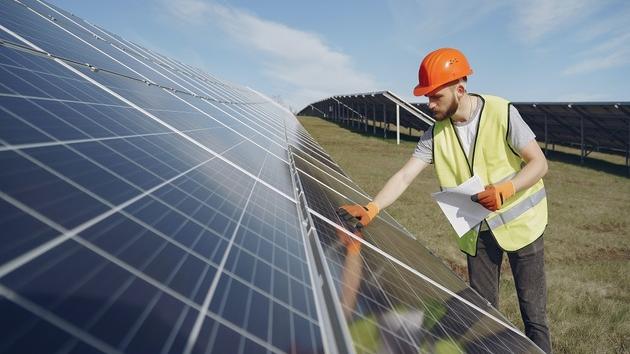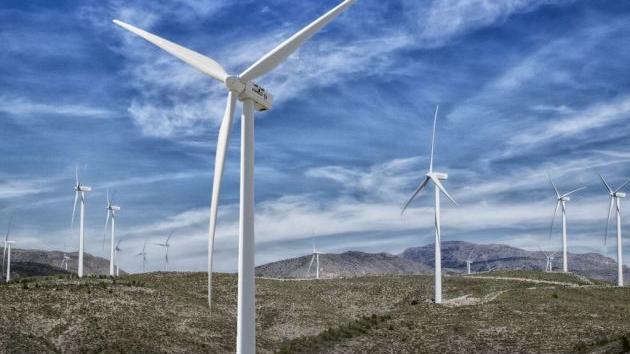Battery storage: Solution for savings, stability and sustainability
Source: eKapija
 Wednesday, 02.04.2025.
Wednesday, 02.04.2025.
 21:15
21:15
 Wednesday, 02.04.2025.
Wednesday, 02.04.2025.
 21:15
21:15
(Photo: ENEL PS)

Battery energy storage systems have different applications in different sectors. The primary use of these systems is for grid frequency regulation, i.e. to maintain the stability of the electrical grid.
Batteries are charged when there is excess energy, and empty when there is a lack of energy or when the energy system fails. In this way, they regulate the smooth operation of the network.
In periods of high electricity demand, this system is able to supply electricity to the grid in order to reduce the pressure on traditional power plants.
Solar and wind power are variable, which means they produce energy at different periods depending on external factors. BESS helps by storing excess renewable energy during peak production periods and by releasing stored energy when output is low. In this way, it is ensured that renewable energy can be available on days without wind and sun.
Microgrids or decentralized systems (networked solar panels, wind turbines, battery storage and control systems) are small energy systems that can operate independently of large, traditional centralized systems (hydroelectric power plant, thermal power plant, nuclear power plant, etc.). BESS is often used in wireless networks to manage local production, energy storage and distribution.
In case of power failure, battery storage can provide immediate backup power for critical infrastructure like hospitals, data centers and factories. Unlike traditional generators which require fuel, the BESS are cleaner and quieter systems.
Businesses and residents increasingly use battery storage for emergency power during power outages. For example, if you have a solar system installed at home, the battery can store the excess energy generated during the day for use at any time during a power shortage. This energy storage technology has a short response time and in a short period of time the process of supplying energy to consumers can begin.
Off-grid power supply: In remote areas or off-grid locations (rural areas), BESS enables users to store and use energy independently from the main grid. This is particularly useful in areas where connecting to a network is too expensive or impractical.
In many states where regulation is in place, companies and individuals can trade electricity through intermediaries. Electricity prices vary during the day based on demand (dynamic prices). Battery storage facilities enable consumers (residential, commercial or industrial) to charge their batteries when electricity is cheaper and they use stored energy when prices are higher. This can significantly reduce electricity bills. Owners of these systems can earn money in this way by selling electricity on the market in moments when electricity prices are higher.
Where are battery storages used?
1. Residential BESS systems
Homeowners with solar panel systems often use batteries to store excess solar energy during the day and use it at night. This setup makes homes more energy efficient and reduces grid reliance. The capacity of residential systems is from 3 kWh to 50 kWh.
2. Commercial and Industrial BESS (C&I)
Large businesses and factories use battery storage for energy management and reducing operating costs. This system can provide backup power during power outages, optimizes energy use and helps businesses take advantage of lower off-peak electricity prices. The capacity of commercial systems is from 50 kWh - 5 MWh.
3. Utility BESS (Utility scale)
Large-scale energy storage systems use battery storage to stabilize the grid, they store renewable energy and manage changes in electricity supply and demand. Those are big plants which contain a large number of batteries and accompanying equipment. The capacity of the given systems is generally in the range of 5 MWh - 100 MWh and more.
4. Electric vehicle (EV) charging stations.
BESS is increasingly being used in electric vehicle charging stations, allowing the system to charge cars more efficiently and relieves the power grid. This is particularly important in countries where electric vehicles have been fully adopted.
As a leader in the field of energy solutions, ENEL PS has long-term experience in designing, implementation and maintenance of advanced uninterruptible power supply systems. Our expert team offers comprehensive support - from needs analysis and technical design to delivery, installation and integration of battery storage in existing energy systems. In addition, we monitor the latest regulatory changes and financial incentives, enabling our customers to make informed decisions and make maximum use of the benefits of these technologies. If you are considering investing in battery energy storage, ENEL PS is your reliable partner on this journey.
Filip Paunović, R&D Electrical Engineer ENEL PS DOO

Click here to see the entire Special Edition Newsletter
"ECONOMICALLY ECOLOGICAL - Green is the new black"
read more
Companies:
 ENEL PS d.o.o. Beograd
ENEL PS d.o.o. Beograd
Tags:
ENEL PS DOO
Filip Paunović
Battery storage
Battery Energy Storage System
BESS
special edition newsletter economic ecological green is the new black
SEN green is the new black
Comments
Your comment
Most Important News
Full information is available only to commercial users-subscribers and it is necessary to log in.
Follow the news, tenders, grants, legal regulations and reports on our portal.
Registracija na eKapiji vam omogućava pristup potpunim informacijama i dnevnom biltenu
Naš dnevni ekonomski bilten će stizati na vašu mejl adresu krajem svakog radnog dana. Bilteni su personalizovani prema interesovanjima svakog korisnika zasebno,
uz konsultacije sa našim ekspertima.


 Izdanje Srbija
Izdanje Srbija Serbische Ausgabe
Serbische Ausgabe Izdanje BiH
Izdanje BiH Izdanje Crna Gora
Izdanje Crna Gora


 News
News














